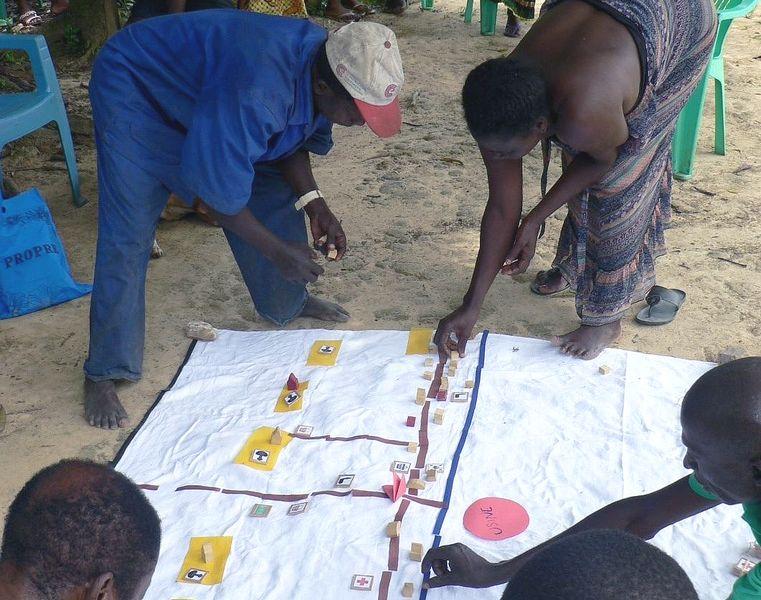- Home
- Worldwide
- CIRAD worldwide
- Projects
- SWM project
Sustainable wildlife management - SWM

Participatory mapping of a village hunting zone in Gabon © CIRAD
Issues
In zones where livestock production is limited due to unfavourable climate conditions and where meat imports are difficult or excessively costly, hunting wildmeat serves to feed large numbers of rural families and generate income from sales. In major urban areas, wildmeat is seen as a luxury, and is often in great demand. As a result, many countries now face a wildmeat "crisis", affecting wildlife populations in their forests and savannahs. An estimated 4.6 million tonnes of wildmeat are consumed each year in the Congo Basin, the equivalent of almost half the beef produced annually in the European Union.
Description
The programme is working to protect wildlife and sustainable hunting practices in forest, grassland and wetland ecosystems. This means building management capacity among indigenous and rural communities, promoting healthy, sustainable wildlife and domestic animal production chains, and revising legal and regulatory frameworks. The zones covered – Chad, Congo, Democratic Republic of the Congo, Gabon, Guyana, Madagascar, Mali, Papua New Guinea, Senegal, Sudan, Zambia and Zimbabwe – offer very different social and ecological contexts in which sustainable governance and management models are being tested in close collaboration with the authorities, national universities and local stakeholders. This unprecedented geographical coverage, combined with the range of activities (public conservation policy support, agricultural job creation, women's empowerment and defence of indigenous people's rights) make this programme a model for addressing the urgent ecological and economic issues faced by the world's poorest people.
Expected impacts
- The knowledge generated during the project will have enabled the drafting and adoption of public policies that reconcile conservation and food and nutrition security.
- This will have improved the institutional and legal framework, enabling the sustainable use of wildmeat from species that are resilient to hunting and fishing.
- Alternative protein sources will have been established (poultry rearing, aquaculture, etc).























